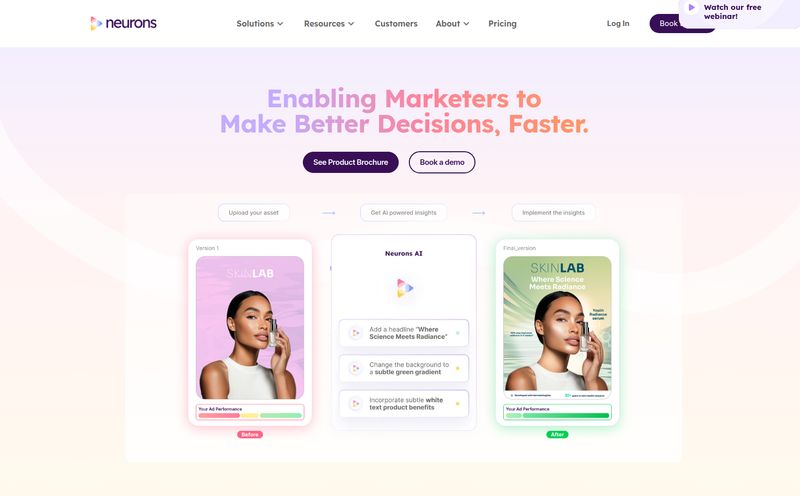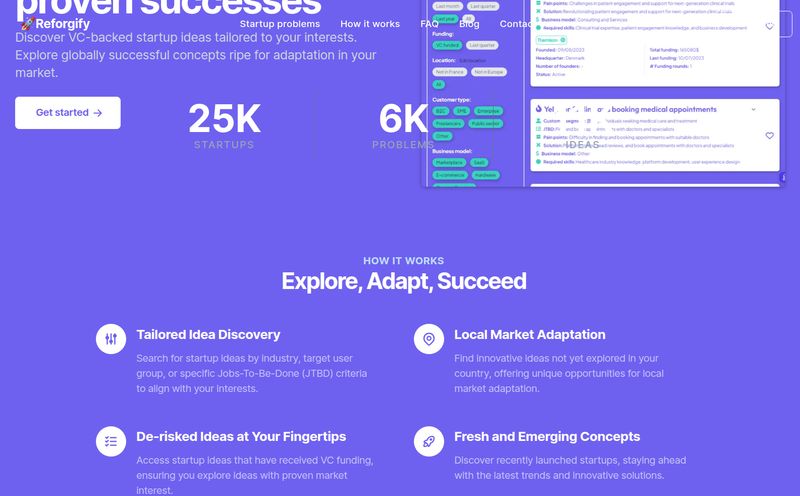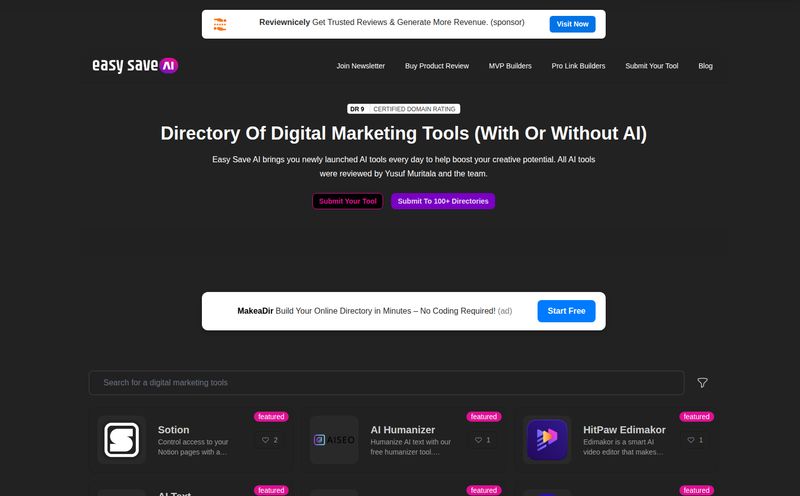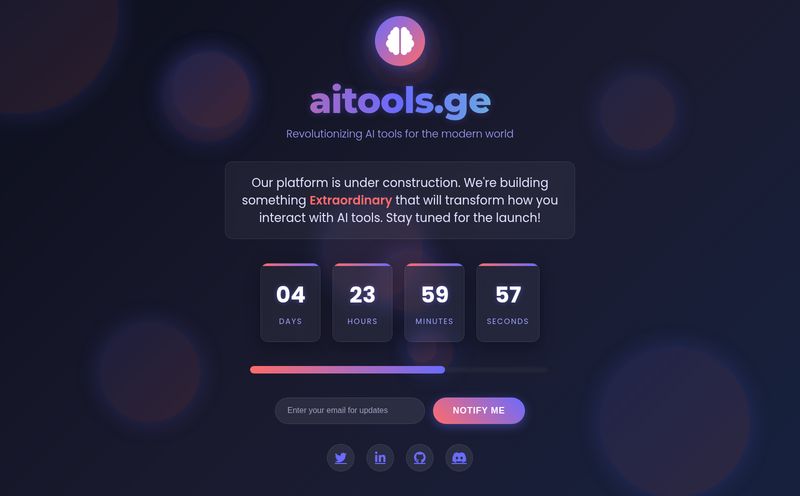Ah, tax season. That magical time of year when my coffee intake triples, my sleep schedule evaporates, and my email inbox becomes a raging tire fire of client questions. For years, it’s just been the cost of doing business. You put your head down, power through the mountains of paperwork and arcane tax code, and hope to see the sun again sometime in May. It's a grind.
But lately, the buzz around AI tools has been impossible to ignore. Every other week there's a new platform promising to automate your life, write your emails, and probably walk your dog. I’ve always been a bit of a skeptic. A general-purpose AI is one thing, but can it really handle the beautiful, chaotic mess that is the U.S. tax code? I've seen some try, and the results... well, they were not pretty.
Then I came across CPA Pilot. It’s not trying to be everything to everyone. It’s built from the ground up for one specific, long-suffering group of people: us. Tax professionals. So, I decided to take a closer look. Is this just another shiny object, or could it actually be the co-pilot we need to navigate the annual storm?
So, What Exactly is CPA Pilot?
Let's get this straight first: CPA Pilot isn't just a fancy skin on top of ChatGPT. According to their site, they're running their own proprietary model. This is a big deal. It means the AI has been specifically trained on the stuff that gives us nightmares—the federal tax code, state-level regulations, and even relevant court cases. It's an AI assistant designed to act as your research associate, your junior staff member, and even your marketing intern, all rolled into one.
The whole idea is to take the repetitive, time-sucking tasks off our plates. Think about all the hours spent looking up the same deduction rules for a new client, or drafting a polite email explaining why, no, their pet goldfish is not a dependent. CPA Pilot aims to handle that, giving you back your time to focus on the high-level strategy and client relationships that actually grow your practice.
The Features That Actually Matter
A feature list is just a list. What matters is how it works in the real world. I’ve seen enough platforms with a million buttons that do nothing. CPA Pilot seems to focus on a few key areas that cause the most headaches.
Your Personal Tax Research Librarian
This is the big one for me. How many times have you found yourself 12 tabs deep in the IRS website, trying to decipher a single paragraph written in pure legalese? It’s maddening. CPA Pilot claims to have an AI that can do that heavy lifting for you. You can ask it complex tax questions in plain English, and it will search through its database of authoritative sources to give you an answer. And here’s the clincher: it provides citations. You can see exactly where it got its information, which is non-negotiable for professional work. They claim up to 95% accuracy, which is impressive, but I’d still be double-checking its work—more on that later.
Taming the Client Communication Beast
The constant back-and-forth with clients can be a huge drain. CPA Pilot has a function to help you draft professional, clear answers to common questions. You can feed it a client's query, and it will generate a response based on current tax law. This isn't about letting a robot talk to your clients. It's about getting a solid first draft that you can quickly review, tweak, and send. Turning a 15-minute task into a 2-minute one is a massive win when you’re facing a hundred emails.
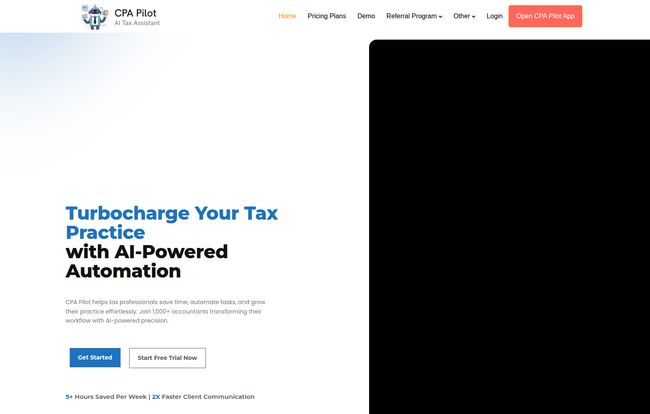
Visit CPA Pilot
More Than Just Taxes A Marketing and Training Assistant?
This was a surprising bonus. The tool can also help create marketing content. Need a quick blog post about Q4 estimated taxes or a social media update on a new tax credit? It can whip that up. It also serves as a training tool for new staff, giving them a place to get quick answers without pulling a senior associate away from their work. It's a nice little value-add that makes the platform feel more complete.
Let's Talk Money: CPA Pilot Pricing
Alright, this all sounds great, but what’s the damage? Price is always the sticking point. CPA Pilot has a tiered structure that seems designed to fit different practice sizes, from the solo practitioner to a larger firm. They offer both monthly and yearly plans, with a discount if you commit for the year.
Here’s a quick breakdown of their monthly pricing:
| Plan Name | Monthly Cost | Messages/Month | Best For |
|---|---|---|---|
| CPA Pilot 20 | $19 | 20 | Solo pros testing the waters. |
| CPA Pilot 60 | $49 | 60 | Small practices with regular research needs. |
| CPA Pilot 150 | $119 | 150 | Growing firms with higher query volumes. |
| CPA Pilot Unlimited | $199 | Unlimited | Power users and research-heavy practices. |
Note: These prices are based on information from their site and could change. All plans come with a 7-day free trial with 20 messages, which is a great way to see if it works for you before pulling out the credit card.
The Good, The Bad, and The AI
No tool is perfect. Let's get into the nitty-gritty. I’ve been around the block enough to know that you have to weigh the good against the not-so-good.
What I Really Like
The biggest pro is the most obvious: time. The potential to save, as they claim, over 20 hours a week during the busy season is massive. That’s time you can spend on billable work, business development, or, dare I say it, with your family. The specialization is another huge plus. This isn’t a generic chatbot; it speaks our language. The fact that it provides citations from authoritative tax resources is, for me, the most important feature. It builds a bridge of trust that many other AI tools lack.
Where You Still Need to Be the Pilot
Now for a dose of reality. As with any AI, you can't just blindly trust its output. The system is only as good as the information its trained on, and it can misunderstand nuanced or unusually structured questions. The documentation mentions that number pulling can sometimes be inaccurate, so if you're asking it to extract specific figures from a document, you absolutely must verify them yourself. Think of it as an incredibly fast, slightly naive, junior associate. You give it the task, it does the legwork in seconds, but you still need to be the seasoned professional who gives the final sign-off. It’s a co-pilot, not autopilot.
Is CPA Pilot a Worthy Investment for Your Practice?
So, the million-dollar question (or, well, the $19-a-month question): is it worth it? In my opinion, for most tax professionals, the answer is probably yes. The scalability in its pricing means you can start small and see how it fits into your workflow. For a solo CPA, even the basic plan could easily pay for itself by saving just one or two hours of research a month.
For larger firms, the benefits multiply. It standardizes the research process, helps train new hires, and frees up senior staff from answering the same questions over and over. The return on investment here isn’t just about time saved; it’s about improving efficiency across the board.
Frequently Asked Questions about CPA Pilot
What sources does CPA Pilot use for its answers?
It primarily uses authoritative sources like the Federal tax code, state-level tax resources, and relevant court cases and precedents. Crucially, it provides citations so you can check the original source.
Can I use it for state-specific tax questions?
Yes, the platform includes access to state-level tax resources, making it useful for practices that handle clients across different states.
What happens if I use all my messages?
One of the nice features is that unused messages roll over to the next month. If you're on a tiered plan and run out, you'd likely need to wait for the next cycle or upgrade your plan.
Is there a free trial available?
Yes, they offer a 7-day free trial that comes with 20 messages. This is a great way to kick the tires and see if it suits your needs without any financial commitment.
How accurate is it really?
They claim up to 95% accuracy. However, AI can make mistakes. The best practice is to always use the provided citations to verify critical information before passing it on to a client.
Is my client's data safe?
This is a critical question for any cloud-based tool. While CPA Pilot is designed for professionals, you should always review their privacy policy and terms of service to understand how they handle data. Never input sensitive PII (Personally Identifiable Information) into any third-party AI unless you are certain about its security protocols.
The Final Verdict
Look, technology isn't going to make tax season fun. Let's not get crazy. But tools like CPA Pilot represent a genuine shift in how we can manage the workload. It’s not about replacing the expertise and judgment of a seasoned professional. It’s about augmenting it. It’s about automating the grunt work so we can focus on being the strategic advisors our clients need.
If you're feeling the burn of tax season and looking for a way to work smarter, not just harder, CPA Pilot is definitely worth a look. That free trial is calling your name. It might just be the best hire you make all year.
